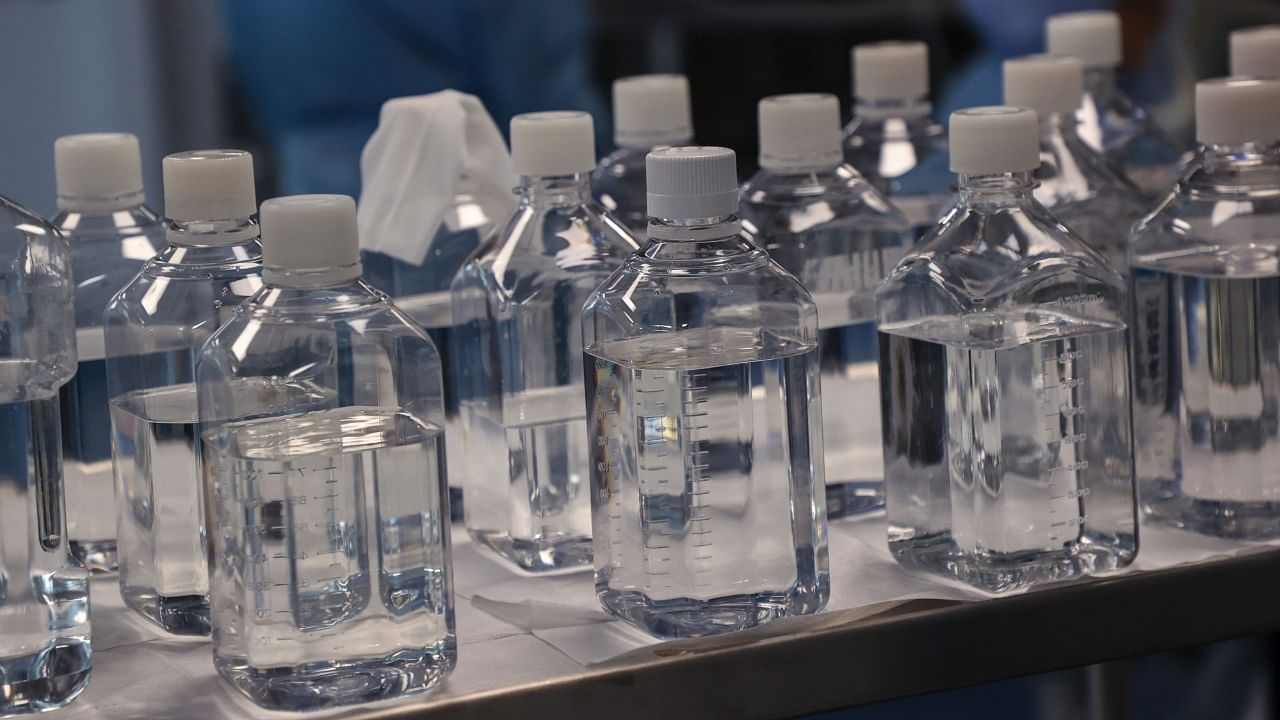
By Antony Sguazzin
Moderna Inc is heading for a clash with the South African government and the World Health Organization (WHO) over patent claims that vaccine advocates say could threaten the continent’s access to Covid-19 shots.
Medecins Sans Frontiers and other health and relief groups are calling on the vaccine-maker to abandon three patent applications filed years ago in South Africa, saying they could impede a WHO-backed effort to make messenger RNA shots for low-income countries at a hub in Cape Town.
The patents effectively give Moderna the right to stop anyone from making or selling an mRNA vaccine in South Africa, said Charles Gore, the director of the Medicines Patent Pool, which is helping the WHO establish the mRNA hub. Other countries have already shot down similar applications from the company, he said. “The very broad patent has not been accepted anywhere else,” Gore said in an interview.
Moderna has already rebuffed Afrigen Biologics & Vaccines, part of the mRNA hub, when it asked for help making a low-cost version of the company’s vaccine for distribution in poor nations, some of which have immunized just 0.5 per cent of their populations. While Afrigen now says it can make the shot based on publicly available information, Moderna’s patent filings in South Africa hang over the humanitarian effort.
“These patents and applications pose barriers to production and supply of mRNA vaccines by alternative developers in South Africa,” MSF and the People’s Health Movement said in a technical brief dated January this year. “Particularly, they create uncertainties for any outputs of the Covid-19 mRNA vaccine technology transfer hub.”
Vaccine access
Moderna has said it won’t enforce its patents during the pandemic. The company said in a statement that it’s “committed to continuing to be part of the solution in terms of the equitable access” to Covid-19 vaccines and its intellectual property won’t “create a barrier to equitable mRNA Covid vaccine access in those countries most in need.”
Yet vaccine advocates still see problems in the company’s stance: Moderna can determine on its own when it sees the pandemic as having ended, at which point it could potentially try to legally block copycat vaccines. They say Moderna may require Afrigen to pay for a commercial licence, boosting the cost of the shots for some of the world’s poorest nations.
“Our preference is a royalty-free voluntary license for low- and middle-income countries or a revocation of that claim,” said Petro Terblanche, Afrigen’s managing director. “Whether they will is a different question. It’s a really bad claim. The discussion will continue and the pressure will continue.”
While the hub will focus initially on a Covid-19 shot, its ultimate purpose is to target the diseases that plague Africa such as HIV, tuberculosis and malaria with mRNA shots it plans to develop. The patents could block those from being produced, said Terblanche.
The root of the problem lies in South Africa’s patent office, which accepts applications without examination as long as the paperwork is in order and the fees are paid, said Jetane Charsley, a director of regulatory and compliance affairs at the government’s National Intellectual Property Management Office. In most other countries patent applications are examined and rejected when they’re too broad.
The country’s Department of Trade, Industry and Competition is working toward a substantiative examination of patent filings through new legislation. The department has hired and is beginning to train patent examiners, said Charsley.
Moderna’s patents, which will start expiring in 2034, cover the method of production of an mRNA vaccine and gene sequences used in that vaccine, MSF said in its technical brief. The company has also applied for some additional patents related to mRNA vaccines. Similar claims have either lapsed or been rejected elsewhere including China, Israel, Australia and Canada, MSF said.
Various South African government departments are working with the WHO, the mRNA hub and the Medicines Patent Pool to try to resolve these issues, said Nicholas Crisp, deputy director-general for the country’s Department of Health. If a solution can’t be found, the government could potentially seek to revoke the patents or issue a compulsory license, allowing the hub to produce an mRNA vaccine, according to Gore. Both could potentially lead to lengthy and costly procedures.
Watch the latest DH Videos here: